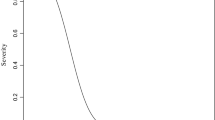Abstract
On analogy with testimony, I define a notion of a scientific theory’s lacking or having candor, in a testing situation, according to whether the theory under test is probabilistically relevant to the processes in the test procedures, and thereby to the reliability of test outcomes. I argue that this property identifies what is distinctive about those theories that Karl Popper denounced as exhibiting “reinforced dogmatism” through their self-protective behavior (e.g., psychoanalysis, Hegelianism, Marxism). I explore whether lack of candor interferes with the testing of theories, and conclude that (1) our default attitude toward theories that lack candor in a given test should be suspicion, but (2) the circumstance that a theory lacks candor in a testing situation does not preclude obtaining independent evidence for the auxiliary assumptions to which the theory is probabilistically relevant, and thereby eliminating the problem that lack of candor creates. Thus, Popper was right to think that lack of candor is a bad thing, but wrong to conclude that candor is a criterion of the scientificity of a theory. Seeing this requires recognition of some differences between intuitive relevance and probabilistic relevance, and proper appreciation of the notion of screening off and of the fact that probabilistic relevance is not transitive.
Similar content being viewed by others
Reference
P. Achinstein (2001) The Book of Evidence Oxford University Press Oxford
L. Bovens S. Hartmann (2002) ArticleTitle‘Bayesian Networks and the Problem of Unreliable Instruments’ Philosophy of Science 69 29–72 Occurrence Handle10.1086/338940
Brown H., (1994), ‘Circular Justifications’. Proceedings of the Biennial Meeting of the Philosophy of Science Association 1994, vol. 1, Contributed Papers, pp. 406–414.
R. Carnap (1950) Logical Foundations of Probability University of Chicago Press Chicago
N. Copernicus (1952) On the Revolutions of the Heavenly Spheres Encyclopedia Brittanica, Inc. Chicago
P.K. Feyerabend (1993) Against Method Verso New York
B. Fitelson (2001) ArticleTitle‘A Bayesian Account of Independent Evidence with Applications’ Philosophy of Science 68 S123–S140 Occurrence Handle10.1086/392903
A. Franklin et al. (1989) ArticleTitle‘Can a Theory-Laden Observation Test the Theory?’ British Journal for the Philosophy of Science 40 229–231
D. Gillies (1972) ArticleTitle‘Operationalism’ Synthese 25 1–24 Occurrence Handle10.1007/BF00484997
C. Glymour (1980) Theory and Evidence Princeton University Press Princeton
A. Grünbaum (1984) The Foundations of Psychoanalysis: A Philosophical Critique University of California Press Berkeley
S. Hartmann (2001) ‘The Import of Auxiliary Theories of the Instrument: A Bayesian Approach’ APA Pacific Division Meeting San Francisco, CA
R. Hudson (1994) ArticleTitle‘Background Independence and the Causation of Observations’ Studies in History and Philosophy of Science 25 595–612 Occurrence Handle10.1016/0039-3681(94)90049-3
Hudson, R.: 2000, ‘Evaluating Background Independence’, Philosophy of Science Association Biennial Meeting, Vancouver, B.C.
P. Kosso (1989) ArticleTitle‘Science and Objectivity’ Journal of Philosophy 86 245–257
T.S. Kuhn (1996) The Structure of Scientific Revolutions EditionNumber3 University of Chicago Press Chicago
Lakatos I., (1978), The Methodology of Scientific Research Programmes, ed. Worrall J., Currie G., Cambridge University Press, Cambridge.
K. Popper (1966) The Open Society and Its Enemies, vol 2, The High Tide of Prophecy: Hegel, Marx, and the Aftermath Princeton University Press Princeton
K. Popper (1989) Conjectures and Refutations: The Growth of Scientific Knowledge Routledge & Kegan Paul London
H. Reichenbach (1956) The Direction of Time University of California Press Berkeley
Roush S., (1999), Conditions of Knowledge, Ph. D. dissertation, Harvard University.
S. Roush (2004a) ArticleTitle‘Discussion: Positive Relevance Defended’ Philosophy of Science 71 110–116 Occurrence Handle10.1086/381416
S. Roush (2004b) ArticleTitle‘Testability and the Unity of Science’ Journal of Philosophy 101 555–573
W. Salmon (1975) ‘Confirmation and Relevance’ G. Maxwell R. Anderson (Eds) Minnesota Studies in the Philosophy of Science, vol. 6: Induction, Probability, and Confirmation. University of Minnesota Press Minneapolis 3–36
E. Sober (1989) ArticleTitle‘Independent Evidence About a Common Cause’ Philosophy of Science 56 275–287 Occurrence Handle10.1086/289487
E. Sober (1999) ArticleTitle‘Testability’ Proceedings and Addresses of the American Philosophical Association 73 IssueID2 47–76
Author information
Authors and Affiliations
Corresponding author
Rights and permissions
About this article
Cite this article
Roush, S. Testability and Candor. Synthese 145, 233–275 (2005). https://doi.org/10.1007/s11229-005-3748-1
Issue Date:
DOI: https://doi.org/10.1007/s11229-005-3748-1




